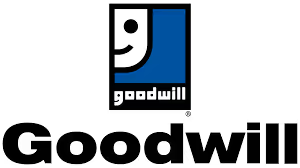






5-Star Valuation Services, Loved by Hundreds
Frequently Asked
Questions
No Frequently Asked Questions Found.
At its core, a tax deduction represents an expense that can be subtracted from total income before calculating the final tax owed. These deductions come in various forms, each with specific qualifying criteria and implications for taxpayers. Key categories include personal expenses like mortgage interest and medical costs, business operational expenses, itemized deductions, and charitable contributions.
Personal deductions cover a wide range of expenses, from housing-related costs to healthcare expenditures. Business owners can offset their taxable income by deducting ordinary and necessary operational expenses such as rent, utilities, and supplies. Taxpayers also have the option to choose between taking a standard deduction or itemizing their expenses, depending on which approach provides the most financial benefit.
Charitable contributions offer another valuable avenue for tax deductions. Donations to qualified organizations not only support meaningful causes but also provide potential tax advantages. However, it's important to understand that deductions reduce taxable income, not the tax bill directly. For instance, a deduction in the 22% tax bracket would lower tax obligations by 22 cents for every dollar deducted.
Navigating tax deductions requires careful attention to evolving tax laws, eligibility requirements, and specific limitations. Tax regulations frequently change, making it essential for taxpayers to stay informed about current guidelines and potential opportunities for tax optimization.
Understanding and strategically applying tax deductions can significantly impact an individual's or business's financial health. While the process can be complex, these deductions represent a legitimate and valuable tool for managing tax responsibilities and potentially reducing overall tax burden.
The process involves a comprehensive evaluation of an asset's worth through systematic and recognized valuation methods. Qualified appraisers employ rigorous techniques such as the cost approach, sales comparison approach, and income approach to establish an accurate and defensible market value. These methodologies consider multiple factors including asset condition, market trends, comparable sales, and potential income generation.
Taxpayers most commonly seek these appraisals for scenarios like charitable donations of property, real estate transactions, business asset reporting, and investment-related deductions. The primary objective is to create a credible, detailed report that transparently demonstrates the asset's value, supporting the taxpayer's claimed deduction.
Meticulous documentation is paramount in these appraisals. A comprehensive report must include detailed asset descriptions, precise valuation methodologies, supporting market data, and the appraiser's professional credentials. This thoroughness helps prevent potential challenges from tax authorities and ensures the appraisal meets stringent regulatory requirements.
Obtaining an appraisal from a certified professional who understands complex tax regulations is crucial. These experts provide an objective, unbiased assessment that can withstand potential IRS scrutiny, helping taxpayers navigate the intricate landscape of tax deductions with confidence and accuracy.
An appliance appraisal is a comprehensive professional evaluation that precisely determines the fair market value of household appliances. Conducted by specialized experts in personal property valuation, this process involves a meticulous assessment of various types of equipment including refrigerators, ovens, washers, dryers, and other kitchen or laundry appliances.
The appraisal process is a nuanced examination that considers multiple critical factors influencing an appliance's overall value. Trained appraisers conduct a thorough inspection, analyzing the item's condition, brand reputation, technological features, and current market dynamics.
Key elements in the valuation process include a detailed review of the appliance's physical state, ranging from brand new to gently used or requiring repair. Each assessment takes into account the specific model's attributes, technological capabilities, and market desirability. The appliance's age plays a significant role, with newer models potentially commanding higher values due to advanced features and updated technology.
Market demand represents another crucial component of the appraisal. Appraisers carefully evaluate current consumer trends, technological advancements, and seasonal variations that might impact an appliance's perceived value. The original purchase price serves as a baseline, though depreciation substantially influences the final valuation.
Practical applications for appliance appraisals are diverse and significant. Homeowners may seek these assessments when selling equipment, relocating, or establishing insurance valuations. They are equally valuable during estate settlements, divorce proceedings, or when making complex financial decisions involving personal property.
Ultimately, an appliance appraisal provides a formal, documented assessment that offers clarity and precision in understanding an item's true market worth. By delivering an objective and comprehensive evaluation, these professional assessments empower individuals to make informed decisions about their household equipment.
Online appliance appraisals have become increasingly sophisticated, leveraging advanced digital technologies to provide comprehensive and accurate valuations. Modern appraisal methods allow property owners and professionals to assess appliance value through comprehensive digital platforms without requiring in-person visits.
The process typically involves submitting detailed documentation, including high-resolution images and specific appliance information such as make, model, age, and current condition. Professional appraisers utilize specialized digital assessment tools to analyze these submissions, ensuring a meticulous evaluation that meets industry standards.
Advanced video conferencing technologies further enhance the online appraisal experience. Platforms like Zoom and Google Meet enable real-time consultations, allowing appraisers to conduct interactive assessments. During these virtual sessions, professionals can examine appliances closely, ask targeted questions, and gather nuanced insights about the item's condition and value.
Critical to the online appraisal process is adherence to Uniform Standards of Professional Appraisal Practice (USPAP). These standards ensure that digital evaluations maintain the same rigorous accuracy and reliability as traditional in-person assessments, providing credibility across various professional contexts.
Digital appraisals offer significant advantages, including convenience, speed, and accessibility. Clients can receive professional valuations without scheduling physical appointments, making the process more efficient and adaptable to diverse needs. Whether assessing a refrigerator, washing machine, or specialized equipment, online appraisals represent a modern, streamlined approach to determining appliance value.
Appliance appraisers represent a specialized professional group with distinct areas of expertise, each addressing unique valuation needs. These professionals bring comprehensive knowledge and targeted skills to different aspects of appliance assessment.
Certified personal property appraisers provide robust, comprehensive evaluations of household appliances. They possess formal training and certification, utilizing rigorous methodologies to assess condition, quality, and market value while maintaining strict ethical standards and professional guidelines.
Resale value appraisers focus specifically on determining potential market prices for used appliances. Their expertise involves analyzing current market trends, evaluating depreciation rates, and comparing similar sales to generate accurate valuation reports. These professionals are particularly valuable for individuals considering selling or liquidating appliance inventories.
Insurance appraisers specialize in establishing precise replacement and repair cost assessments for insurance purposes. They collaborate closely with insurance providers, generating detailed documentation that supports claim processing and coverage determinations.
Estate appraisers play a critical role during inheritance and estate settlement processes. Their comprehensive evaluations help facilitate equitable asset distribution, supporting legal and financial decision-making by providing accurate appliance valuations within broader estate contexts.
Antique and specialty appraisers represent a unique subset, focusing on vintage or historically significant appliances. These professionals evaluate items based on historical significance, rarity, condition, and collectible potential, often requiring deep specialized knowledge beyond standard market assessment techniques.
Home inspector-qualified appraisers offer supplementary insights during property transactions. While their primary focus encompasses broader property evaluations, they can provide nuanced assessments of appliance functionality and potential longevity.
Selecting the appropriate appraiser depends entirely on specific contextual requirements, ensuring precise, professional, and contextually relevant valuation services.
Navigating the world of appliance valuation can be complex, but understanding its importance can help you make informed financial decisions. An appliance appraisal offers critical insights across multiple scenarios, from insurance protection to legal proceedings.
Insurance coverage stands as a primary motivation for obtaining an appraisal. When unexpected events occur, having precise documentation of your appliances' value ensures you receive fair compensation. This detailed assessment becomes crucial during claims processes, protecting your financial investment against potential losses from theft, damage, or destruction.
Legal and financial transitions also benefit significantly from professional appliance valuation. During estate planning or divorce settlements, an objective assessment helps determine equitable asset distribution. High-end or specialized appliances often have nuanced values that aren't immediately apparent, making professional evaluation essential for accurate property division.
Tax considerations present another compelling reason for appraisal. Charitable donations of appliances valued above specific thresholds require professional documentation to substantiate potential tax deductions. This process ensures compliance with regulatory requirements while maximizing potential financial benefits.
Real estate transactions represent another context where appliance appraisals prove valuable. Potential buyers appreciate transparent, professional assessments of existing appliances, which can enhance property marketability and instill confidence in the transaction.
Ultimately, an appliance appraisal transcends simple monetary valuation. It provides a comprehensive understanding of your assets, supports critical financial decisions, and offers peace of mind in various personal and professional scenarios.
What Makes Appliance Appraisals Critical for Tax Purposes?
Understanding the Impact of Appliance Appraisals on Tax Deductions
Appliance appraisals are a critical component of strategic tax planning, offering precise insights that can significantly impact your financial obligations and potential savings.
Key Benefits of Professional Appliance Valuation
- Precise Tax Reporting: Accurate appraisals ensure you're reporting appliance values correctly to tax authorities
- Maximized Deduction Potential: Comprehensive evaluations help identify maximum allowable depreciation
- Risk Mitigation: Professional documentation reduces the likelihood of tax-related investigations
Critical Components of an Appliance Appraisal
- Comprehensive Value Assessment
A professional appraisal provides a detailed examination of an appliance's current market value, considering factors like:
- Age of the appliance
- Current condition
- Market comparables
- Remaining useful life
- Depreciation Documentation
Different appliances depreciate at varying rates, which directly impacts tax deduction strategies. Professional appraisals help:
- Identify precise depreciation schedules
- Provide clear documentation for tax filing
- Support potential audit requirements
Strategic Tax Planning Considerations
Proper appliance appraisals are more than just number-crunching—they're a proactive approach to financial management. By understanding the nuanced value of your assets, you can:
- Optimize tax deduction strategies
- Maintain accurate financial records
- Demonstrate compliance with tax regulations
Potential Risks of Inaccurate Reporting
Misrepresenting appliance values can lead to significant consequences, including:
- Potential IRS audits
- Monetary penalties
- Increased tax liability
By investing in professional appliance appraisals, you're not just documenting value—you're implementing a strategic approach to tax planning and financial transparency.
Why Precision Matters: The Value of Accurate Appliance Valuation
Accurate valuation of appliances is a critical process that impacts multiple financial aspects of asset management. Understanding the true market value of your appliances can lead to significant strategic benefits across various domains.
Key Reasons Precision Matters in Appliance Appraisal
Tax Benefits and Compliance
When claiming deductions for appliance depreciation or loss, precise valuations are essential. Incorrect assessments can result in:
- Potential IRS audits
- Possible financial penalties
- Missed legitimate tax relief opportunities
Understanding Market Dynamics
Appliance values are dynamic, influenced by:
- Age of the equipment
- Current condition
- Technological advancements
- Current market trends
Insurance and Replacement Considerations
Accurate valuations provide critical advantages during insurance claims by:
- Ensuring adequate coverage
- Facilitating faster claim processing
- Preventing potential underinsurance
Strategic Financial Planning
Precise appraisals support smarter financial decisions, including:
- Informed selling strategies
- Optimal replacement timing
- Maximizing potential return on investment
Professional Credibility
Certified appraisal processes provide significant advantages such as:
- Validated asset documentation
- Compliance with industry standards
- Enhanced credibility with financial institutions
Ultimately, precise appliance valuation transcends mere number-crunching—it's a strategic approach to understanding and managing valuable assets effectively.
Which Appliances Qualify for Tax Deduction Appraisals?
When considering tax deductions for appliances, it's crucial to understand which items genuinely qualify for appraisal. Eligible appliances are typically those integral to business operations or directly linked to income-generating activities.
Commercial Appliances
Appliances used in commercial settings often have significant tax deduction potential. Key commercial appliances include:
- Commercial refrigerators and freezers
- Professional-grade dishwashers and ovens
- Industrial washers and dryers
- HVAC systems and specialized climate control equipment
These appliances are critical for business functionality and typically represent substantial investments that can yield meaningful tax benefits.
Appliances for Rental Properties
Rental property owners can leverage appliance appraisals for tax purposes. Qualifying appliances typically include:
- Refrigerators
- Cooking ranges and ovens
- Washers and dryers
- Dishwashers
Appraising these items helps establish fair market value, supporting potential depreciation claims and tax deductions.
Energy-Efficient Appliances
Sustainable appliances may qualify for specialized tax credits and deductions. Notable examples include:
- Energy Star-rated refrigerators
- High-efficiency air conditioning units
- Smart home temperature control systems
- Water and energy-conserving washers and dishwashers
Maintaining comprehensive documentation is crucial for claiming these energy-related tax incentives.
Personal Use Appliances with Special Considerations
While personal appliances generally do not qualify, certain exceptions exist. Appliances primarily used for business purposes—such as a dedicated home office refrigerator—may be eligible for tax consideration.
Key Recommendations
- Maintain detailed records of purchase dates and costs
- Document specific business or income-generating usage
- Consult with a tax professional for personalized guidance
- Understand specific IRS guidelines for appliance deductions
Professional consultation ensures you navigate complex tax regulations effectively and maximize potential financial benefits.
Navigating the Appliance Appraisal Landscape
When it comes to tax deduction purposes, understanding the appliance appraisal landscape is essential for homeowners and business owners seeking to optimize their financial strategy. An appliance appraisal provides a formal evaluation of the current market value of your appliances, which can be critical in maximizing tax returns and ensuring regulatory compliance.
Understanding Appliance Appraisals
Appliance appraisals are comprehensive assessments that determine the worth of items such as refrigerators, ovens, dishwashers, and other household or commercial appliances. These evaluations are conducted by certified professionals who meticulously analyze several key factors:
- Appliance brand and manufacturing details
- Current age and operational condition
- Existing market trends
- Depreciation potential
Why Appliance Appraisals Matter
- Maximizing Tax Deductions
An accurate appraisal provides critical documentation to support tax deductions, particularly when you've donated, sold, or replaced appliances within a specific tax year.
- Insurance Protection
Appraisals establish precise valuations for insurance claims, ensuring appropriate compensation in the event of damage, theft, or loss.
- Estate Management
For individuals managing estates, comprehensive appliance valuations facilitate equitable distributions among heirs and assist in efficient debt settlement processes.
The Comprehensive Appraisal Process
The typical appraisal process involves a structured approach implemented by qualified professionals:
- Selection of a certified appraiser specializing in personal property evaluation
- Detailed physical inspection of the appliance
- Comprehensive market comparison analysis
- Generation of a detailed valuation report
Key Evaluation Criteria
Appraisers conduct an in-depth analysis that includes:
- Examining the specific make and model
- Assessing overall physical condition
- Comparing the appliance to similar items in the current marketplace
- Calculating potential depreciation
Final Considerations
Effectively navigating the appliance appraisal landscape requires careful consideration, professional expertise, and a strategic approach. By securing a formal, comprehensive appraisal, individuals can gain deeper insights into their appliance values and make informed financial decisions that potentially optimize tax outcomes.
Key Factors That Determine Your Appliance's Tax Deduction Value
Navigating Appliance Value for Tax Deductions
Understanding the key factors that determine your appliance's tax deduction value is crucial for maximizing potential savings and ensuring tax compliance. Several critical elements influence the final assessment of an appliance's worth.
1. Age and Condition Assessment
- Appliance age directly impacts depreciation value
- Older appliances typically have lower tax deduction potential
- Condition factors include:
- Operational status
- Repair history
- Overall wear and tear
2. Original Purchase Price Considerations
- Initial cost serves as the baseline for value calculation
- Higher-priced appliances may retain more value over time
- Importance of maintaining purchase documentation
3. Depreciation Method Selection
- Multiple depreciation approaches exist:
- Straight-line depreciation
- Accelerated depreciation
- Method selection significantly impacts value reduction rate
- Professional tax consultation recommended for optimal approach
4. Market Demand and Comparative Analysis
- Current market trends influence appliance value
- Factors affecting market demand:
- Unique features
- Brand reputation
- Technological advancements
- Comparative sales research provides accurate value insights
By carefully evaluating these key factors, you can make informed decisions about your appliance's tax deduction potential, ensuring you maximize your financial benefits while maintaining full tax compliance.
Tax Deduction Strategies: Maximizing Your Appliance Appraisal
Understanding Appliance Appraisals for Tax Deductions
Optimizing tax deductions requires strategic insight, particularly when it comes to valuing household and business appliances. A professional appraisal serves as a critical tool for maximizing potential tax savings and maintaining accurate financial records.
Key Aspects of Appliance Depreciation
- Systematic Value Reduction: Appliances naturally depreciate over time, allowing for strategic tax deductions
- Accurate Valuation Methods: Professional appraisals provide precise current market value assessments
- Business and Rental Property Applications: Particularly beneficial for assets used in income-generating environments
Establishing Fair Market Value
A certified appraiser evaluates appliances by considering multiple critical factors:
- Current physical condition
- Age of the appliance
- Market demand and resale potential
- Technological relevance
Strategic Appraisal Timing
Timing your appliance appraisal is crucial for maximizing tax benefits. Consider the following recommendations:
- Conduct appraisals close to tax filing periods
- Update documentation when significant market changes occur
- Reassess appliance values for recent acquisitions or major upgrades
Professional Guidance
While understanding appliance valuation is important, partnering with a qualified tax professional can help you:
- Navigate complex tax regulations
- Develop comprehensive deduction strategies
- Ensure compliance with current tax laws
- Maximize potential tax savings
A strategic approach to appliance appraisals can yield significant financial advantages, providing both immediate tax benefits and long-term asset management insights.
Avoiding Costly Mistakes in Appliance Valuation
Key Strategies for Accurate Appliance Valuation
Navigating the complexities of appliance appraisal for tax deductions requires a strategic and meticulous approach. By understanding critical factors that impact valuation, you can minimize errors and maximize potential tax benefits.
Critical Valuation Considerations
- Brand and Model Assessment
The specific brand and model dramatically influence an appliance's market value. High-end manufacturers typically maintain value more effectively, making detailed specification analysis crucial for precise valuation.
- Comprehensive Condition Evaluation
Appliance value directly correlates with its age and overall condition. While depreciation is inevitable, well-maintained or recently upgraded appliances can retain significant worth. Honest, objective condition reporting is paramount.
- Dynamic Market Intelligence
Appliance values fluctuate based on supply, demand, and broader economic trends. Staying informed about current market dynamics helps prevent both undervaluation and overvaluation risks.
Documentation and Professional Validation
- Compile comprehensive supporting documentation:
- Original purchase receipts
- Complete warranty information
- Detailed service and maintenance records
- Consider professional appraisal services to ensure:
- Accurate market-based valuation
- Understanding of local economic nuances
- Precise depreciation calculations
Tax Compliance Essentials
Understanding IRS guidelines is critical when pursuing appliance-related tax deductions. Key considerations include:
- Distinguishing between personal and business appliance use
- Recognizing specific documentation requirements
- Adhering to precise valuation methodologies
Meticulous attention to these strategic elements ensures a robust, defensible approach to appliance valuation for tax deduction purposes.
Preparing for a Successful Appliance Appraisal
Key Steps for a Comprehensive Appliance Appraisal
Navigating an appliance appraisal for tax deduction purposes requires strategic preparation and attention to detail. Follow these essential guidelines to ensure a thorough and accurate assessment:
1. Comprehensive Documentation Gathering
- Collect all original purchase receipts
- Compile warranty information
- Organize equipment manuals
- Maintain detailed service and repair records
2. Thorough Condition Assessment
- Evaluate overall appliance functionality
- Document any signs of wear or damage
- Note recent repairs or maintenance
- Highlight well-maintained features that might impact value
3. Market Value Research
- Review current marketplace pricing for similar appliances
- Compare local and online listing values
- Understand depreciation trends in your specific appliance category
- Gather evidence of comparable equipment values
4. Professional Presentation
- Clean and organize appliances before appraisal
- Ensure easy access for thorough inspection
- Prepare to demonstrate full functionality
- Create a neat, professional environment for assessment
5. Clear Communication Strategy
- Prepare detailed background on each appliance
- Explain specific value-impacting characteristics
- Be transparent about appliance history
- Provide context for tax deduction objectives
6. Professional Appraiser Selection
- Verify appraiser credentials and specializations
- Check professional certifications
- Request sample appraisal reports
- Confirm experience with tax deduction assessments
Methodical preparation transforms your appliance appraisal from a routine assessment into a strategic financial opportunity. By implementing these comprehensive steps, you position yourself for a precise and potentially advantageous valuation.
How to Select the Right Appraiser for Your Needs
Selecting the Right Appraiser for Appliance Tax Deductions
Choosing a qualified appraiser is essential when seeking an accurate valuation for tax deduction purposes. The right professional can help you maximize potential tax benefits while ensuring a thorough and credible assessment.
Key Considerations When Choosing an Appraiser
- Professional Credentials and Expertise
- Verify professional certifications such as Certified Appraiser or Accredited Member
- Prioritize appraisers with specialized experience in household appliance valuations
- Look for professionals who understand various brands, models, and market dynamics
- Specialized Knowledge
- Confirm the appraiser's specific focus on appliance valuation
- Ensure they can comprehensively assess condition, age, and market demand
- Seek professionals who understand nuanced valuation requirements
- Reputation and Verification
- Request and check professional references
- Review online testimonials and client feedback
- Confirm the appraiser's track record of accurate and reliable assessments
- Valuation Methodology
- Inquire about their comprehensive valuation approach
- Verify methods include market research and comparative analysis
- Ensure a thorough condition assessment process
- Professional Standards Compliance
- Confirm adherence to Uniform Standards of Professional Appraisal Practice (USPAP)
- Verify reporting consistency and reliability
- Check for current professional certifications
- Communication and Transparency
- Choose an appraiser who explains their process clearly
- Ensure they are willing to answer detailed questions
- Seek professionals who provide comprehensive, understandable reports
By carefully evaluating these critical factors, you can select an appraiser who will provide an accurate, reliable valuation that supports your tax deduction objectives.
Building a Comprehensive Appraisal Documentation Trail
Building a Comprehensive Appraisal Documentation Trail
Establishing a thorough and reliable appraisal documentation trail is crucial for leveraging appliances as tax deductions. A meticulous approach provides tangible evidence of the appliance's value and protects you against potential tax audits.
Key Components of Effective Documentation
- Maintain Detailed Records
- Collect and preserve purchase receipts
- Retain warranty information
- Document all maintenance and repair records
- Provide proof of ownership and appliance history
- Secure a Professional Appraisal
- Hire a certified appraiser specializing in appliance valuation
- Ensure comprehensive evaluation considering:
- Age of the appliance
- Overall condition
- Current market trends
- Request a detailed appraisal report outlining:
- Exact market value
- Appraisal methodology
- Valuation criteria
- Compile Photographic Evidence
- Capture high-resolution images from multiple angles
- Include close-ups of significant features
- Document any unique characteristics or modifications
- Ensure images clearly demonstrate appliance condition
- Document Value Trends
- Research historical pricing data
- Compare with similar appliance valuations
- Track market value changes over time
- Provide context for current valuation
- Create an Organized Filing System
- Develop a systematic digital or physical filing method
- Ensure easy document retrieval
- Prepare for potential tax submissions or audits
- Maintain document integrity and accessibility
By constructing a comprehensive documentation trail, you not only maximize potential tax deductions but also establish a robust framework for future appliance valuations.
Pro Tip
Consistency and thoroughness are key. The more detailed and organized your documentation, the stronger your position during tax assessments.
Beyond Taxes: The Hidden Value of Professional Appliance Appraisals
Appliance appraisals go far beyond simple tax documentation, offering homeowners a comprehensive understanding of their valuable assets. These professional evaluations uncover critical insights that can significantly impact financial decision-making.
Key Benefits of Professional Appliance Appraisals
Insurance Protection and Accurate Valuation
- Provides documented proof of appliance value for insurance claims
- Establishes fair market value at a specific point in time
- Critical documentation for theft, loss, or damage scenarios
Depreciation Insights and Financial Planning
Professional appraisals offer critical insights into appliance depreciation, which varies based on:
- Usage patterns
- Brand quality
- Overall condition
These insights enable homeowners to make strategic decisions about potential upgrades or replacements, maximizing long-term financial investments.
Market Trend Understanding
Professional appraisers stay current with:
- Emerging technologies
- Eco-friendly innovations
- Changing market dynamics
This knowledge helps homeowners strategically navigate appliance investments and potential sales opportunities.
Home Sale Marketability
A recent professional appraisal can:
- Increase property listing transparency
- Build buyer confidence
- Provide clear documentation of appliance value
Ultimately, appliance appraisals represent a strategic tool that extends far beyond tax considerations. They provide a comprehensive approach to understanding, protecting, and maximizing the value of household assets.
Your Appliance Appraisal Questions, Answered
Understanding Appliance Appraisals for Tax Deductions
Navigating the world of appliance appraisals can be complex, but with the right knowledge, you can confidently approach this financial strategy. Let's dive into the key aspects of appliance appraisals and their tax implications.
What is an Appliance Appraisal?
An appliance appraisal is a professional evaluation that determines the fair market value of your appliances. This comprehensive assessment considers multiple critical factors:
- Current physical condition of the appliance
- Age and model specifications
- Brand reputation
- Current market trends and demand
Tax Deduction Potential
Appliance appraisals can offer significant tax advantages for both homeowners and business owners. Here's how they can benefit your financial strategy:
- Substantiate depreciation claims for personal or business property
- Potentially reduce taxable income
- Provide documented proof of asset value
- Support insurance and financial reporting needs
The Appraisal Process
A professional appraisal typically involves the following steps:
- Gathering detailed appliance information
- Physical inspection or remote assessment
- Comprehensive market value analysis
- Detailed valuation report generation
Essential Documentation
To ensure a smooth and accurate appraisal, prepare the following documents:
- Original purchase receipts
- Maintenance and repair records
- Previous appraisal documents (if available)
- Serial and model numbers
Key Valuation Factors
Multiple elements influence an appliance's appraised value:
- Appliance age and expected lifespan
- Overall physical condition
- Frequency and type of use
- Current market demand
- Technological obsolescence
Understanding these nuances empowers you to make informed decisions about your appliance assets and potential tax strategies. Always consult with a qualified tax professional to maximize your specific financial benefits.
View all Locations
APPRAISEITNOW APPRAISERS ARE BEST-IN-CLASS & CREDENTIALED BY LEADING APPRAISAL ORGANIZATIONS LIKE THE ISA, ASA, & MORE.






.svg)










